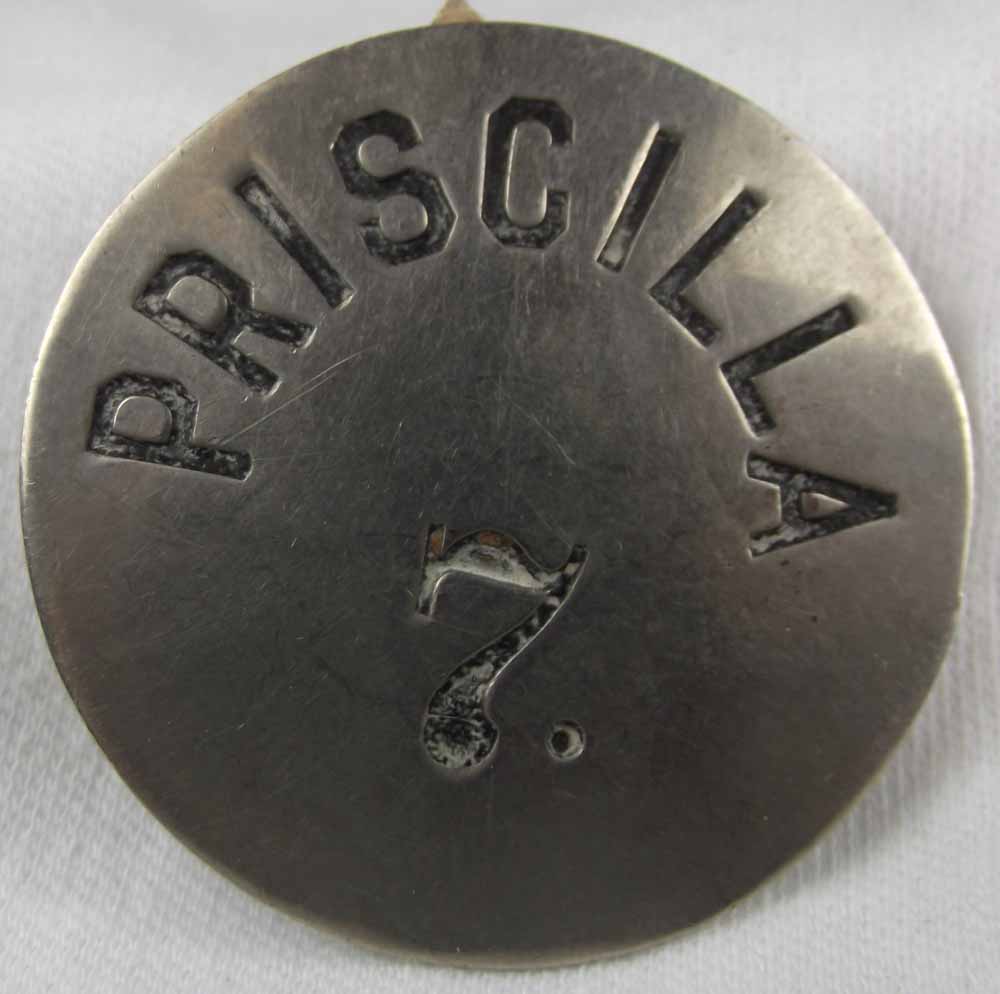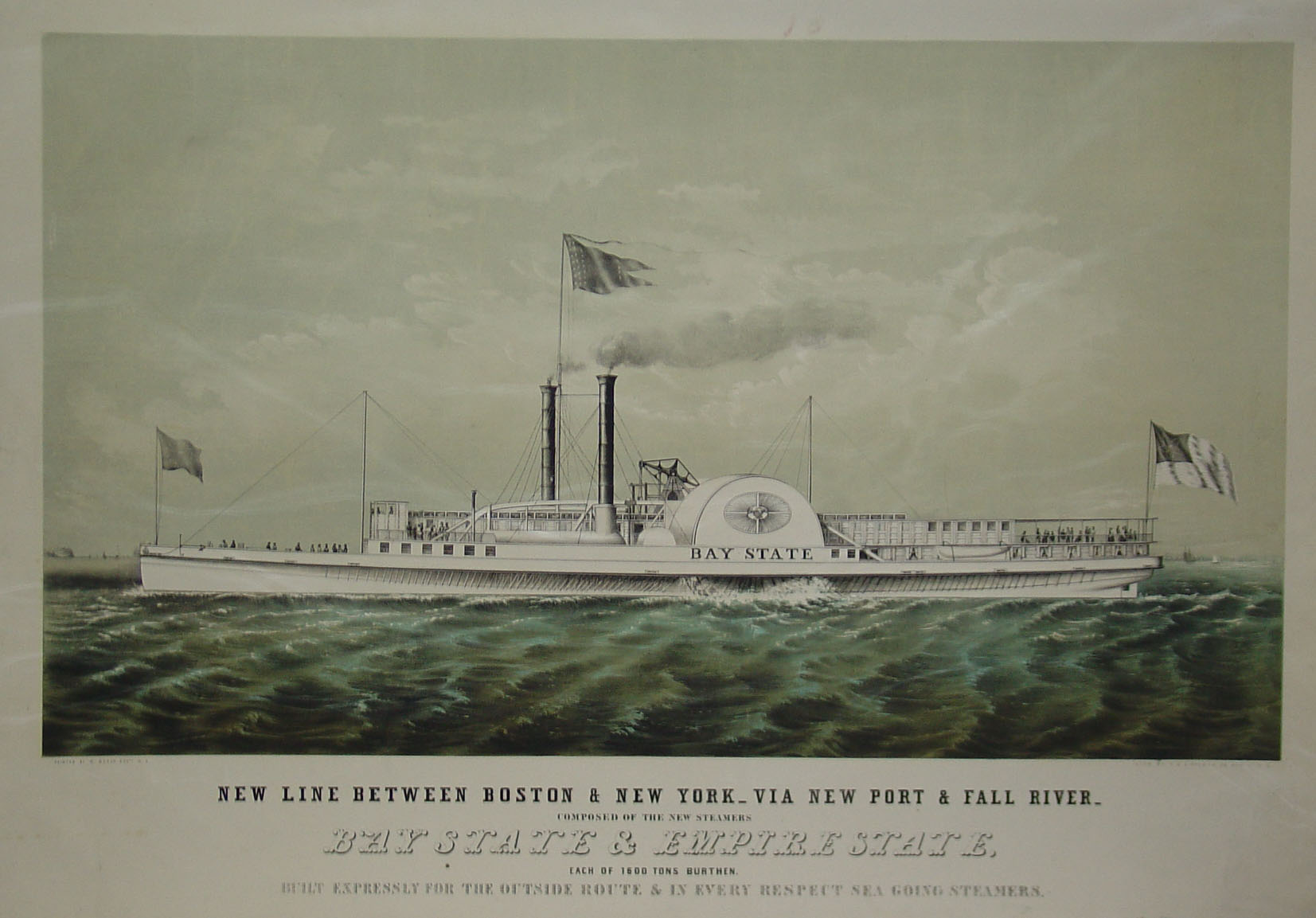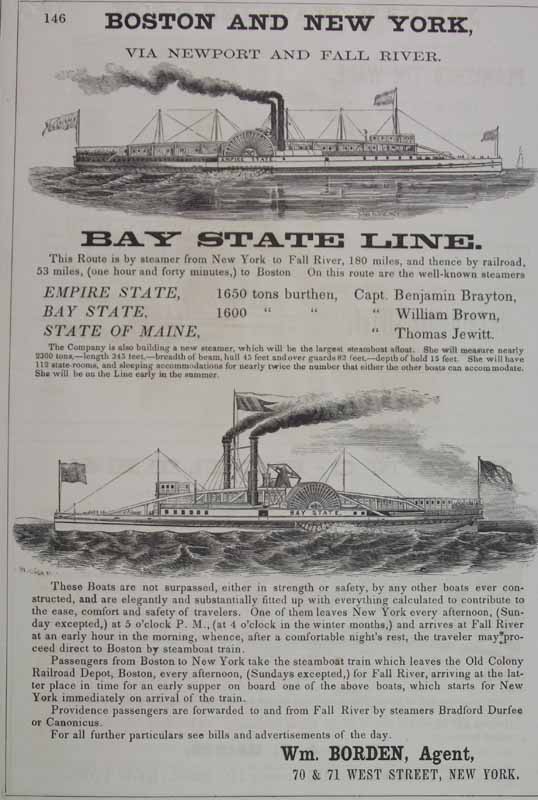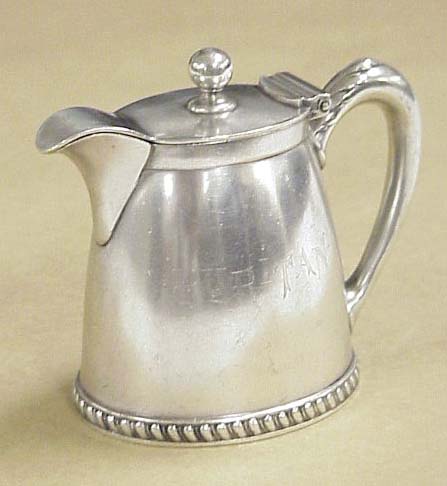Today I offer a murder mystery for your consideration. On August 4, 1892, Andrew and Abby Borden were found dead in their Fall River, Massachusetts home; a murder for which Andrew’s daughter Lizzie Andrew Borden would be charged and later acquitted. Whether or not Lizzie Borden killed her father and stepmother remains a question to this day, with scholars and armchair detectives eagerly debating their opinions. I won’t offer an opinion on her guilt or innocence here. But I will offer a connection between artifacts in our collection and the infamous Lizzie Borden.
It begins with Colonel Richard Borden from her paternal grandfather’s side of the family. Only three generations separate the two relatives. but unlike Lizzie, Richard seems to have been universally liked and respected. Accounts of his life describe him as honest, self-reliant, intelligent, steadfast in his convictions, physically strong, charitable, and possessing the highest moral standards. He also didn’t mind a bit of hard work.
A former militia officer during the War of 1812, this entrepreneur apparently never found a business he didn’t like. He worked at the family grist mill, did a bit of boat building, co-founded the Fall River Iron Works Company and served in local and state government. But that’s not all. Add to that his textile mills, a reservoir, printing company, a gas company, banks and what connects him to our collection…a railroad and steamship company.
Richard had operated steamboats between Fall River and Providence Rhode Island since the 1830s as part of his businesses. But in 1847, he and his brother Jefferson decided to start the Bay State Steamboat Company and paired it with Richard’s railroad interests to provide a link between Fall River to Boston and New York. Their first ship was appropriately named Bay State.
The Fall River Line was a quick success for both business and popular purposes. The passenger services provided by the line were on beautifully appointed ships that the company said had everything “calculated to contribute to the comfort and safety of traveler.” Later voyages would also include musical and theatrical entertainment.
But service had to be suspended during the Civil War and the Borden brothers made the decision to sell the Fall River Line in 1863 to the Boston, Newport and New York Steamship Company. The new owners resumed services in 1866 and despite the Fall River Line changing hands a few more times over the years, it remained in service for 90 years until 1937.
As for Richard Borden, he is remembered in Fall River as not only an affluent businessman, but one of the most influential men to ever shape the city. He worked until 1872 when he suffered ill health and was stuck with paralysis. He would die 2 years later.
And what about Lizzie? After she was acquitted of murdering her father and stepmother, Lizzie would be ostracized by members of the Fall River community for the remainder of her life by those who questioned her involvement in the deaths. She would never be free from constant scrutiny and criticism and books and articles published during her lifetime brought reminders and new interest to the case time and time again. Lizzie would never marry and after a year of health problems, she died in 1927.
I offer a few photos from the many artifacts we have in the collection relating to the Bay State Steamboat Company and the Fall River Line. I hope you enjoy them.





